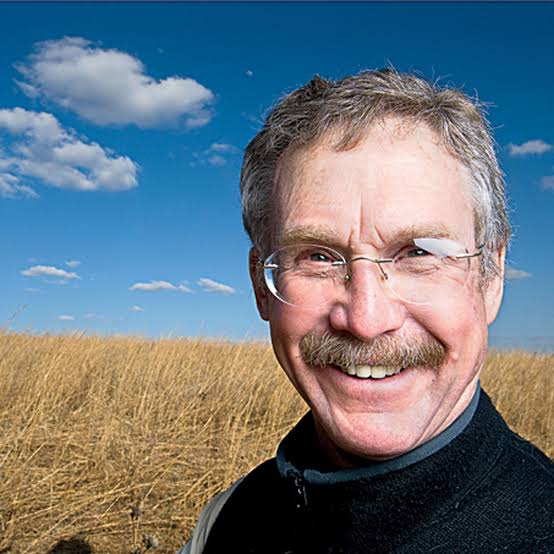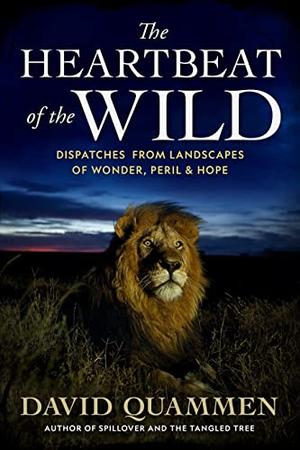
24 May Telluride Library: One Book, One Canyon, Two Quammens Return with Their Two Latest Books, 3/28!
Telluride’s Wilkinson Public Library presents another installment of its ongoing series, One Book, One Canyon. Featured are Betsy Gaines Quammen and David Quammen. The duo return for an encore on Tuesday, May 28, starting at 5:30 p.m., to talk about their latest books.
Go here for more about Telluride Library.
Go here for more about FOL.

David Quammen

Betsy Gaines Quammen
The Telluride Library is excited to welcome back David Quammen (2023 One Book, One Canyon featured author for “Breathless”) and Betsy Gaines Quammen to discuss their new books.
David Quammen’s most recent title, “Heartbeat of the Wild,” is a collection of essays from two decades as a National Geographic correspondent, exploring what happens when civilization meets raw nature and the challenge of balancing the needs of both.

From Amazon:
For more than two decades, award-winning science and nature writer David Quammen has traveled to Earth’s most far-flung and fragile destinations, sending back field notes from places caught in the tension between humans and the wild. This illuminating book features 20 of those assignments: elegantly written narratives, originally published in National Geographic magazine and updated for today, telling colorful and impassioned stories from some of the planet’s wildest locales.
Quammen shares encounters with African elephants, chimpanzees, and gorillas (and their saviors, including Jane Goodall); the salmon of northeastern Russia and the people whose livelihood depends on them; the lions of Kenya and the villagers whose homes border on parks created to preserve the species; and the champions of rewilding efforts in southernmost South America, designed to rescue iconic species including jaguars and macaws.
With a new introduction, afterword, and notes framing each story, Quammen reminds us of the essential role played by wild nature at the heart of the planet.
From Kirkus Reviews:
Quammen, the award-winning author of ‘Breathless’ ‘Spillover,’and ‘The Song of the Dodo,’ has long worked for the iconic magazine, and most of the pieces have been slightly updated. Some readers may be surprised to learn that huge areas of the planet exist where no man has set foot, and there are plenty of blank spots in our knowledge of life, humans included. The author chronicles the story of Mike Fay, a quasi-Victorian “half-crazed white man” explorer in the tradition of David Livingstone and Henry Morton Stanley who walked more than 2,000 miles through the last great remaining forests of Central Africa to survey its biological diversity. Three long articles describe the 15-month expedition, which resulted in no deaths but a few near misses. Tales of Africa occupy most of the chapters, although there is a compelling story from Chile and Argentina, where a wealthy American couple has persuaded the governments to form national parks including much land they have bought. Two chapters detour to Kamchatka in Russia’s far east, a sparsely populated wonderland of volcanoes, geysers, wildlife, and salmon-rich streams and a reminder that the Soviet Union’s fall was an ecological disaster, as its government abandoned nature reserves to rapacious entrepreneurs and poachers. Quammen strains to remain optimistic on the subject of conservation and sometimes succeeds, but the future looks uncertain. It’s mostly money from richer nations that supports conservation in poor nations, but much must be spent to provide their citizens jobs, education, and infrastructure. National Geographic is famous for maps and brilliant photographs that accompany the articles. Sadly, there are none in this collection, and readers may struggle to follow some narratives because Quammen often writes about villages and other geographical features too obscure to turn up in internet searches.
A great nature writer cleans out his desk.
Betsy Gaines Quammen’s latest book, “True West,” challenges the many myths of the West and explores how they cloud our perceptions today.

From the author’s website:
“True West” explores myths of the West and how, if left unexamined, they distort the realities of the present and exacerbate polarizations. These misperceptions about land, politics, liberty, and self-determination threaten the wellbeing of western communities overrun by newcomers seeking a dream — and the country, unless America recognizes the dangers of building a national identity on illusion.
Gaines Quammen interrogates it all by listening, carefully, to people from varying political and cultural perspectives as she seeks to reconcile the deep anger and broad misunderstandings that linger amid myths that define and impede the West and America.
From Amazon:
From the Northern Rockies to the Southwest deserts, Betsy Gaines Quammen explores how myths shape our identities, heighten polarizations, and fracture our shared understanding of the world around us. As she investigates the origins and effects of myths of the American West, Gaines Quammen travels through small towns and big cities, engaging people and building relationships at every stop. Misperceptions about land, politics, liberty, and self-determination threaten the well-being of people and communities across the country, and Gaines Quammen interrogates it all as she seeks to reconcile the anger and misunderstandings that continue to be fueled by the West’s enduring myths and complex history. Whether sitting down with a militia member seeking to protect his rural Utah town from Antifa or talking with grassroots organizers working across ideological divides, Gaines Quammen brings to life connections and contradictions that shape our politics and our lives far beyond the West.


Sorry, the comment form is closed at this time.